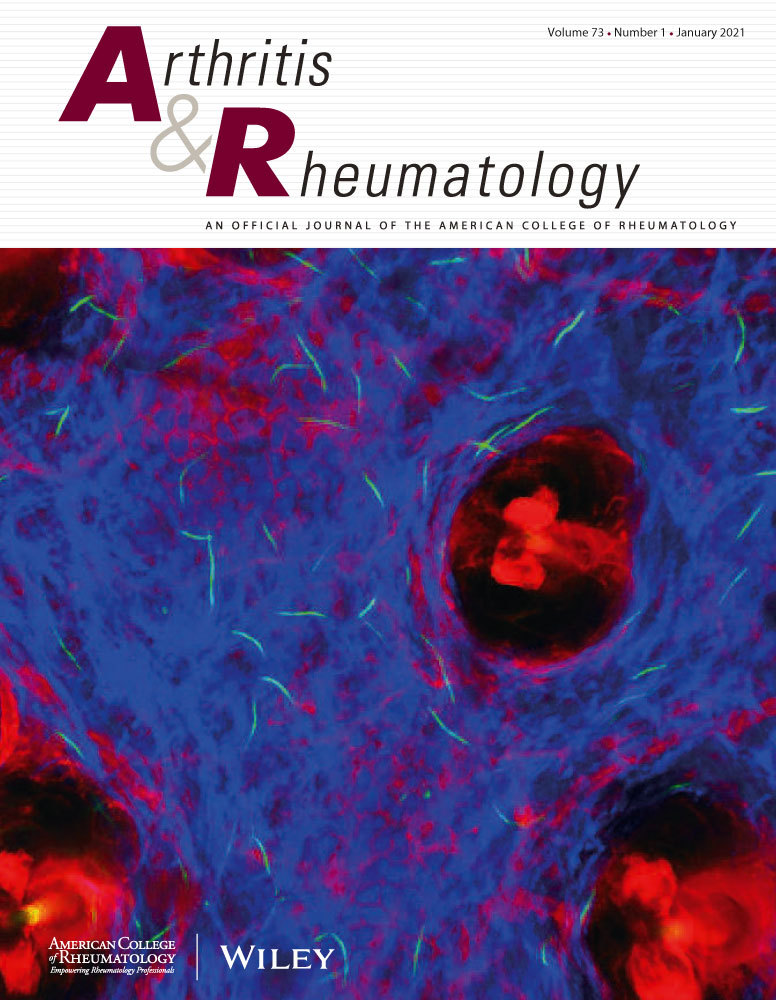Associations Between Rheumatoid Arthritis Clinical Factors and Synovial Cell Types and States
Abstract
Objective
Recent studies have uncovered diverse cell types and states in the rheumatoid arthritis (RA) synovium; however, limited data exist correlating these findings with patient-level clinical information. Using the largest cohort to date with clinical and multicell data, we determined associations between RA clinical factors with cell types and states in the RA synovium.
Methods
The Accelerated Medicines Partnership Rheumatoid Arthritis study recruited patients with active RA who were not receiving disease-modifying antirheumatic drugs (DMARDs) or who had an inadequate response to methotrexate (MTX) or tumor necrosis factor inhibitors. RA clinical factors were systematically collected. Biopsies were performed on an inflamed joint, and tissue were disaggregated and processed with a cellular indexing of transcriptomes and epitopes sequencing pipeline from which the following cell type percentages and cell type abundance phenotypes (CTAPs) were derived: endothelial, fibroblast, and myeloid (EFM); fibroblasts; myeloid; T and B cells; T cells and fibroblasts (TF); and T and myeloid cells. Correlations were measured between RA clinical factors, cell type percentage, and CTAPs.
Results
We studied 72 patients (mean age 57 years, 75% women, 83% seropositive, mean RA duration 6.6 years, mean Disease Activity Score-28 C-reactive Protein 3 [DAS28-CRP3] score 4.8). Higher DAS28-CRP3 correlated with a higher T cell percentage (P < 0.01). Those receiving MTX and not a biologic DMARD (bDMARD) had a higher percentage of B cells versus those receiving no DMARDs (P < 0.01). Most of those receiving bDMARDs were categorized as EFM (57%), whereas none were TF. No significant difference was observed across CTAPs for age, sex, RA disease duration, or DAS28-CRP3.
Conclusion
In this comprehensive screen of clinical factors, we observed differential associations between DMARDs and cell phenotypes, suggesting that RA therapies, more than other clinical factors, may impact cell type/state in the synovium and ultimately influence response to subsequent therapies.

 求助内容:
求助内容: 应助结果提醒方式:
应助结果提醒方式:


